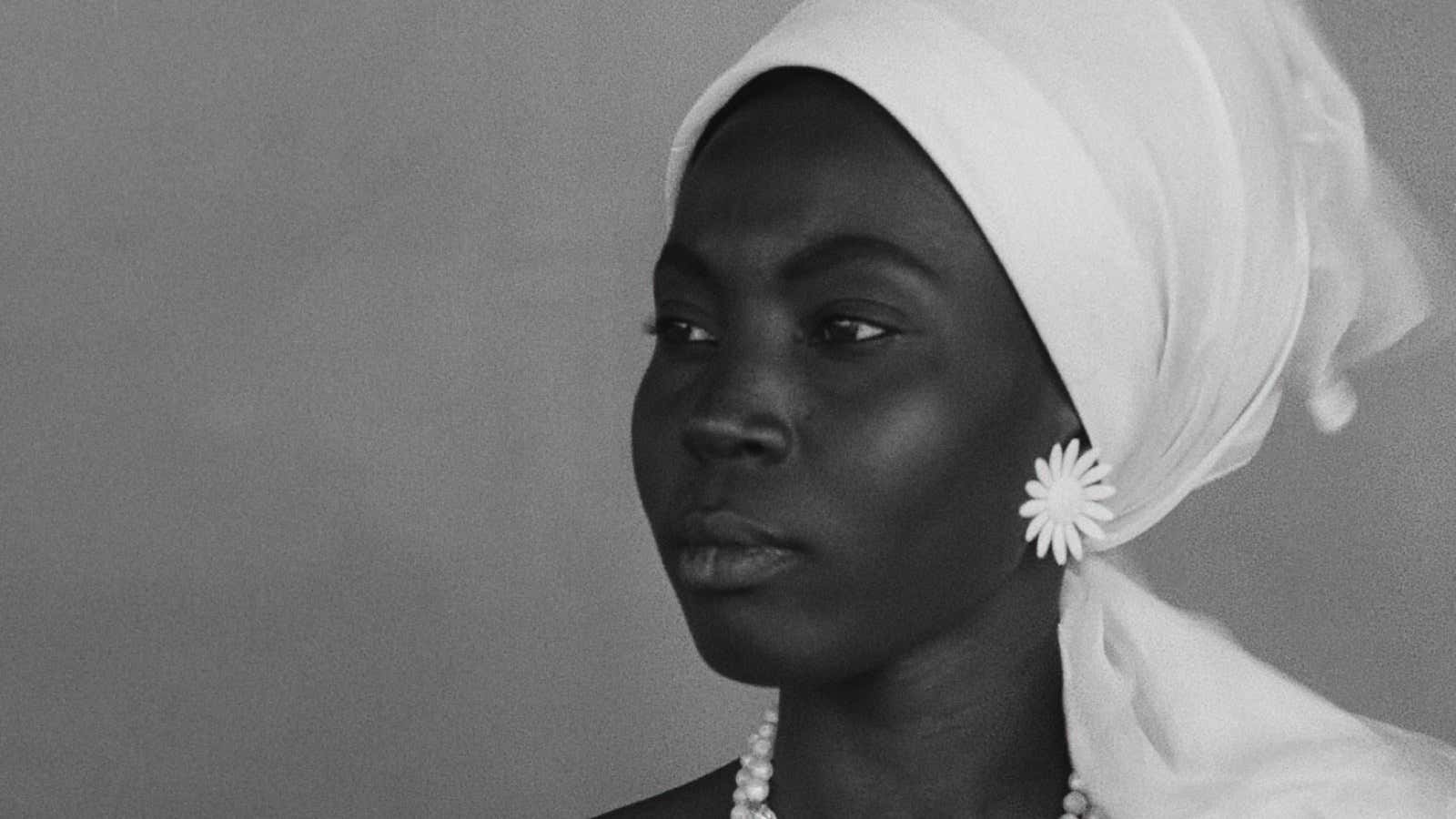Fifty years ago, Ousmane Sembène released his feature debut Black Girl.
The writer and director uses a newly independent Senegal, hungry for political and social alternatives, as the backdrop for the widely acclaimed film. It’s through the film’s main character, Diouana (played by Mbissine Thérèse Diop), that Sembène makes a powerful argument about Senegal’s independence and the impact of colonialism in Africa. It was one of the first African films to receive international acclaim.
The short one-hour film, released in 1966, is a simple yet powerful story of a Senegalese nanny, who hopes and dreams of a better future, but is tied down by the French couple who hire her.
Diouana is initially hired in Dakar to be a nanny to a French couple’s children. She’s asked to come with them to France, where she is promised a better life in France and is ecstatic to be chosen to go on this trip with them. She fantasizes of the shops she’d be able to visit in France and the jealousy her new clothes will evoke.
The reality turns out to be quite different. As the French couple, simply known as Monsieur and Madame, can no longer afford to have as many servants as they did in Senegal, Diouana is now expected to be a cleaner, cook, and a nanny in France. Her life quickly becomes dreary, as she remains trapped in their claustrophobic French apartment, just cooking and cleaning. The little pleasure she got from wearing nice dresses and high heels are taken away from her, as Madame demands she dresses more appropriately.
Sembène—soon to be labelled the “father of African cinema”—presents a powerful critique of black aspiration to be in a France, or more broadly, in a colonizer’s country. Though people are now free in Senegal, they will in many ways still be seen as colonial objects.
Awa Konate is among a number of people hosting a screening of the film in celebration of its 50th anniversary in a bid to spark discussion. A student at the School of Oriental and African Studies in London, for Konate the film is essential viewing for black women today.
“The message of the movie still resonates with black girls today,” Konate tells Quartz. “As much as we have progressed in 2016, the issues of racism and sexism are still very much evident. The film says so much about how black women are constantly relegated to certain positions within society—forced to embody certain stereotypes.”
Janus Films is also releasing a 4K restoration of the film to mark its anniversary. At a time where issues of race and class are resonating more than ever, and countries are struggling to come to terms with their colonial legacies, Black Girl remains a powerful story about personal and political freedom—one that stills hits just as hard.
